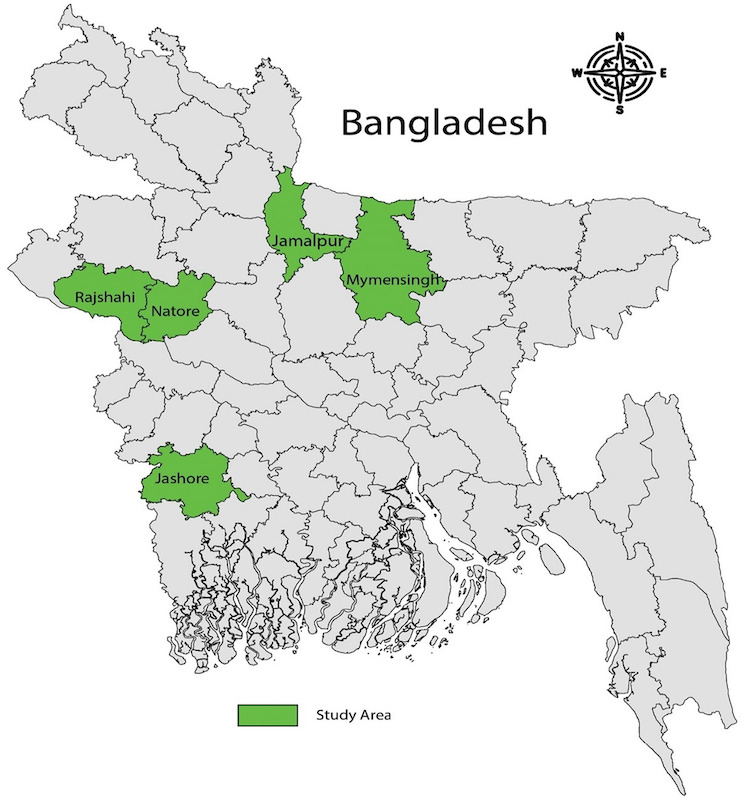
Authors: Md. Emran Hossain, Md. Akhtaruzzaman Khan, Madan Mohan Dey, Md. Samsul Alam
Abstract
Freshwater carp polyculture farming has grown an important production system in Bangladesh in terms of income, nutrition supply, and employment generations in past decades. This study determines the farm-level technical inefficiency along with yield gap and yield loss among a sample of 183 farms practicing carp polyculture in Bangladesh. The result of technical efficiency shows that the farmers are inefficient; nevertheless, they still have a chance to achieve 31% more yield by operating at full efficiency. Fingerling is the most important input significantly influencing production, while age, experience, training, extension service, and dependency ratio significantly affect technical inefficiency. However, a considerable amount of yield gap exists in current production technology, and yield gap may exist due to inefficiency of farmers and technical constraints, i.e., biotic and abiotic. Moreover, the result indicates that abiotic factors are more responsible for losing yield than biotic factors in the study areas. Therefore, further research on carp species should be developed, emphasizing adaptation of abiotic constraints.
Read the full publication at https://doi.org/10.1016/j.aquaculture.2022.738341.
Published May 20, 2022

